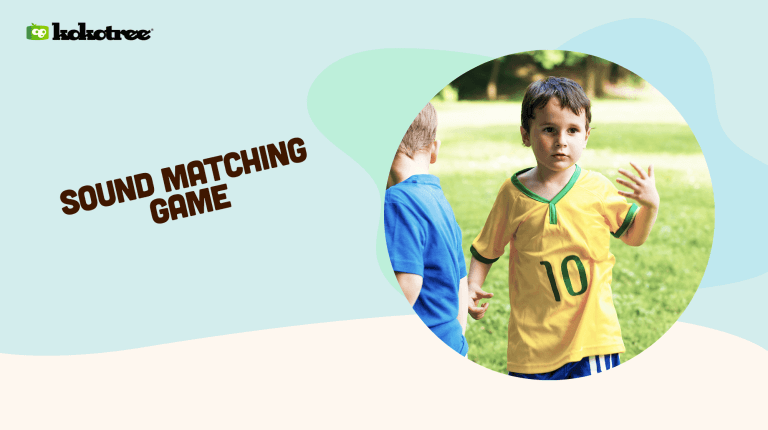

Written by: Kokotree
Updated:

Sound Matching is an engaging and popular game cherished by children, especially in their toddler and preschool years. Its warm appeal arises from the combination of simplicity and excitement. Children spend their time listening to various sounds and matching the ones that are alike. Apart from offering functional amusement, this game also fosters critical development skills in a child’s life. Let’s dive in to understand and appreciate Sound Matching even better.
Sound Matching is a sensory game that allows children to explore the world of sounds and improve their listening skills. The game involves containers filled with varying items like rice, beads and more, which produce different noises when shaken. Children are required to match containers that make similar sounds, enhancing their auditory discrimination.
For ages 2-6. They watch and play for 20 minutes. You get a break.
⭐ 5,000+ parents get daily breaks with Kokotree.
Try it Free →Works in 30 seconds • No credit card • Cancel anytime
The main aim of Sound Matching is to harness children’s auditory skills to identify and liken sounds. It additionally helps kids improve their cognitive abilities, fine motor skills, concentration, and memory.
For ages 2-6. They watch and play for 20 minutes. You get a break.
⭐ 5,000+ parents get daily breaks with Kokotree.
Try it Free →Works in 30 seconds • No credit card • Cancel anytime
Sound Matching does not only provide fun for children but also fosters critical skills. These include:
Armed with a better understanding of Sound Matching, it’s clear that it’s far more than just a game. It’s an opportunity to nurture key skills while keeping our children entertained. As parents and teachers, it’s our role to keep appealing and stimulating games like Sound Matching within arm’s reach. So, why not grab some containers, fill them up, and start making some noise with your child?



